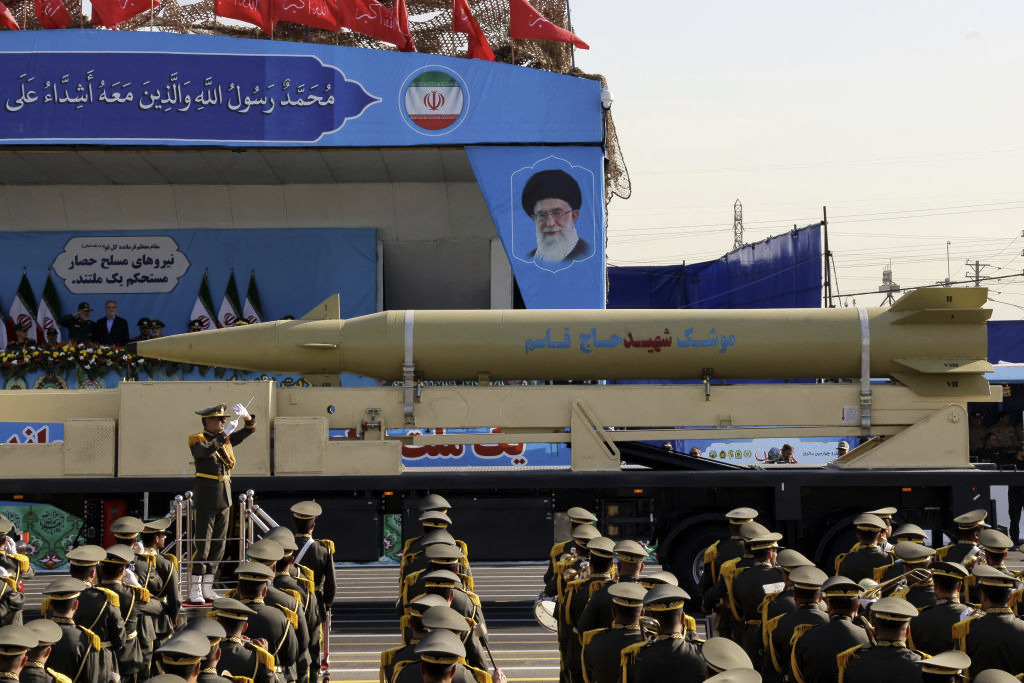
Talk surrounding Iran's nuclear ambitions has long focused on the ruling ayatollahs and their determined pursuit of nuclear weapons. The West's primary focus has been mainly on Iran's domestic leadership: the Supreme Leader, the Islamic Revolutionary Guard Corps, and Iran's nuclear scientists. What remains overlooked is the significant role that China, North Korea and Russia have been playing to make sure that Iran achieves nuclear weapons breakout before US President Donald J. Trump's "two-month ultimatum" runs out.
While the Iranian regime wants nuclear bombs to secure its survival, export its revolution, deter foreign intervention, and project power across the Middle East, China and Russia, appear invested in turning Iran into a nuclear-armed state. Iran is a critical pillar in their geopolitical struggle against the United States and its allies. For Beijing and Moscow, a nuclear Iran is about their broader joint, strategic confrontation with the West. Having Iran as a linchpin strengthens their alliance, which they call the "Axis of Resistance" -- they do not say resistance to what, but presumably it is to the US and the West.
The real danger lies in the way China and Russia have embedded themselves in Iran's nuclear program, most likely to guarantee that the Iranian regime will not fail in its pursuit of the bomb.
Russia has a longstanding strategic and military alliance with Iran. Tehran has provided Moscow with suicide drones, long-range missiles and artillery, allowing Russia to continue its brutal attempted takeover of Ukraine despite Western sanctions and deliveries of weapons. For the Kremlin, ensuring that Iran remains a strong, stable, and militarily capable ally could be essential, both to deter Western intervention in the region and as a powerful counterbalance to US influence in the Middle East, probably in the hope of driving out US forces there.
Communist China, meanwhile, has continued to shield Iran from Western sanctions and provide it with vital economic and technological support. More importantly, China has a history of aiding nuclear proliferation among anti-Western states. It played a significant role in helping Pakistan develop its nuclear weapons program in the 1990s. In turn, Pakistan provided nuclear assistance to North Korea. The latest beneficiary of this strategic proliferation network appears to be Iran.
China has long viewed Iran as a vital part of its broader Belt and Road Initiative to expand Chinese economic and strategic influence across the globe. Iran's geographic position makes it a crucial gateway for China's trade routes, energy supply chains and military expansion. By protecting Iran from Western pressure and facilitating its nuclear ambitions, China ensures that Iran remains a key partner in its broader geopolitical contest with the United States.
Now, with Trump's ultimatum delivered on March 7 to Iran— giving the regime a two-month deadline either to give up its nuclear and missile programs or face severe consequences — Beijing and Moscow have simply been accelerating Tehran's efforts to join the nuclear club and to possesses at least six nuclear bombs before Trump's deadline expires.
A meeting between Iranian and Chinese officials in Beijing, followed by Iran's Supreme Leader Ayatollah Khamenei's outright rejection of Trump's warnings, could signal a dangerous development: Iran has likely received guarantees from China and Russia that they will protect the regime, support its nuclear program, and ensure that it acquires nuclear weapons before the possibly-too-generous deadline Trump has set, no matter the consequences.
Iran's bold rejection of Trump's threats may not be based on internal strength but on external guarantees. Beijing and Moscow have likely calculated that if Iran regime joins the nuclear club and possesses nuclear bombs before Trump's deadline expires and he takes direct action, then the West will be forced to accept a nuclear-armed Iran, just as it has had to accept a nuclear North Korea.
This anti-Western coalition means that the world is facing a new, more imminent nuclear crisis. An Iranian official has claimed they could assemble a nuclear bomb in as little as a week. The combination of Iran's rapidly advancing nuclear program, its strategic alliance with China and Russia, and the pressure created by Trump's ultimatum, creates an urgent reality — one in which delaying action could mean that Iran joins the nuclear club before the West has the chance to stop it.
The implications of these developments mean that the West no longer has the luxury of waiting, or even possibly of negotiating. The window to prevent a nuclear-armed Iran has already closed. The only question is whether the US and its allies will act before the Iranian regime officially announces its nuclear breakout.
While President Trump's ultimatum to Iran was intended to pressure the regime into nuclear negotiations, it has had the unintended effect of giving China, Russia, and Iran a clear deadline to rush the nuclear program forward before the window closes.
With Trump's ultimatum in place, these adversaries are racing against the clock to ensure that Iran becomes a nuclear-armed state. If the US and its allies fail to act immediately, the balance of power could shift permanently, and the West could lose the war before realizing it had even begun.
Dr. Majid Rafizadeh, is a political scientist, Harvard-educated analyst, and board member of Harvard International Review. He has authored several books on the US Foreign Policy. He can be reached at dr.rafizadeh@post.harvard.edu


